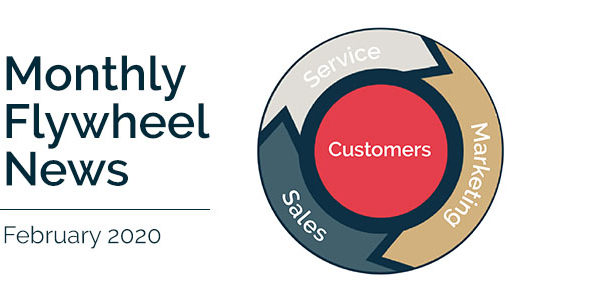Flywheel News: Your Top 6 Hotel Digital Marketing Updates From February 2020

Even with an extra day, February seemed to be over in the blink of an eye and we’re now rolling through 2020 at full speed. Let’s slow down for a few minutes to review all of the exciting hotel digital marketing news from February 2020.
1. Google Announces Changes to Google Ads Partner Status Requirements
The biggest news to hit agencies in February is hands down the announcement from Google to changes in its requirements to qualify as a Google Ads Partner. The new requirements go into effect in June and include:
- 90-day minimum spend requirement doubling
- At least 50% of account users must be certified
- Must hit 70% account optimization score as tracked by Google
GCommerce is already well-positioned to maintain Google Partner certification regardless of these changes. The big moral dilemma facing agencies, including GCommerce, moving forward is when Google’s optimization score campaign recommendations conflict with the best interests of the client for performance. We’ve always gone through Google’s recommendations with a fine-tooth comb because we understand Google’s ultimate goal is to drive more campaign spend while we are concerned with the clients’ specific objectives. GCommerce’s paid search approach will continue to be focused on the client’s best interests for performance and KPIs, even if those conflict with Google’s account optimization recommendations.
2. Google Launches New Local SERP in Europe
Google has launched a new local SERP in the UK in response to EU antitrust decisions. As seen in the below screenshot from Search Engine Land’s article:

Google has started to include directory listing link features at the top of the SERP to give visibility to other directories such as Yelp. It will be interesting to watch this continue to unfold within the EU across different Google SERPs. If your business is located in the EU and is impacted by local search, you should keep an eye on traffic from these subdirectories in relation to your Google and GMB traffic.
3. Google Maps Turns 15!
You may be saying, “great, but why is this important”? Google Maps has become ingrained in our daily lives as consumers but also as hotel marketers. It is linked with Google My Business and helps drive local search proximity signals, local impressions, and exposure for businesses. It is second to only Google’s search product in importance and Google continues to invest in it. Search Engine Land’s article states “According to data from GatherUp and ThriveHive, Google Maps is now driving significantly more local impressions than Google search.” Local search is extremely important to hotels and GCommerce continues to focus on ensuring client pages are optimized in GMB and they are focusing on signals that can impact exposure on this channel.
4. Ads Standards Updated by Coalition for Better Ads
In a change that could mean issues for some YouTube ad formats, the Coalition for Better Ads announced that “Chrome will stop showing ads on sites that repeatedly show” disruptive ad formats. This means consolidation to ad formats that are less of an annoyance which should be a positive impact for consumers and for advertiser performance. These standards look to prevent issues around the increase of consumers blocking ads on browsers. According to Search Engine Land, “ad blocker rates in North American and Europe have declined modestly from their peak in mid-2017” showing that these steps by the Coalition for Better Ads could be having a positive impact.
5. Chrome SameSite Changes Take Effect
If you read our recent blog on the rise of data regulation and the impact on hotel marketing you may recall seeing a timeline event for February 2020 called Google’s SameSite change. This is the first step in Chrome’s move to end support of 3rd party cookies by 2022. According to Search Engine Land, “this change also makes it easier for browsers creators to grant the users options to manage third-party cookies and first-party cookies independently”. It’s another change felt by the impact of data regulation on the web to make it a safer space for users and giving them more control over how their data is tracked and used. GCommerce has confirmed with our technology partners that we are prepared for this setting change. Over the past months, we’ve made updates to our tracking for Google Marketing Suite and other platforms to follow revised best practices and ensure tracking remains as accurate as possible.
6. Facebook Plans Shut Down of Mobile Web Arm in Response to Data Regulation Changes
The second digital marketing news article this month related to data regulations changes from the browser companies, Facebook announced they are planning to shut down the mobile web arm of their Audience Network feature this April. Digiday is stating that “sources said the decision was likely fueled by browser companies’ recent changes to throttle cookies...plus the internal resources required to keep on top of potential negative impacts from new data regulations”. Facebook’s Ad Network is featured as inventory in the current Ads Manager platform. It’s presence and impact on GCommerce client campaigns is minimal as most inventory and performance is driven through in-app inventory. While this might have a slight impact on Facebook Ads campaigns, it should be minimal at best.


